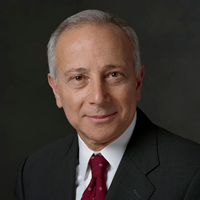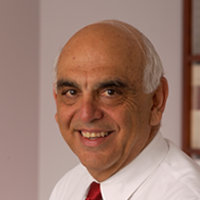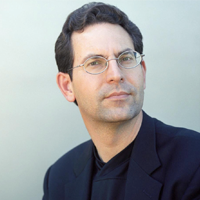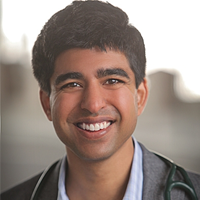
Mark C. Fishman, M.D. is President of the Novartis Institutes for BioMedical Research (NIBR) and a member of the Executive Committee of Novartis. He leads all worldwide discovery and early clinical activities of Novartis from the research headquarters in Cambridge, Massachusetts. The goal of NIBR scientists is to change the practice of medicine, focusing on therapeutics for diseases, no matter how rare, where suffering is great and the scientific underpinnings strong. This approach has increased dramatically the number of new drugs entering and transitioning through clinical trials, especially using biological therapeutics. New medicines from these recent efforts have reached registration for cancer, autoimmune, and respiratory diseases.
Prior to joining Novartis, Dr. Fishman was Professor of Medicine at Harvard Medical School, Chief of Cardiology at the Massachusetts General Hospital (MGH) and the founding Director of the Cardiovascular Research Center of the MGH. During that time he trained more than 80 post-doctoral fellows and students, as well as clinical Cardiology fellows. His lab's discoveries opened a new field of biology. Through the use of genetic screens in the zebrafish, they discovered many of the fundamental principles, and genes, that fashion form and funtion of vertebrate organ systems.
Dr. Fishman has been honored by many awards and distinghuished lectureships, and is a Fellow of the American Academy of Arts and Sciences, and the Institututes of Medicine of the National Academies (USA).

Gary J. Kelloff, MD has had over 40 years in cancer research at the National Cancer Institute (NCI), authoring more than 400 publications. Dr. Kelloff is a graduate of the University of Colorado (BS and MD degrees). After post-graduate training in medicine at Emory University, he began his NCI career as an intramural scientist and section head in viral immunology working on retroviruses and oncogenes. After fifteen years in NCI's intramural program he moved to what is now the Division of Cancer Prevention (DCP), where he developed a basic science, translational research, and clinical development program in chemoprevention. Since 2001, he has been a special advisor for the NCI Division of Cancer Treatment and Diagnosis working on strategies for developing imaging-based and clinical biomarkers for oncology drug development and cancer patient management. He previously led and currently leads several collaborations with FDA and the pharmaceutical industry on drug development strategies and co-chairs on-going efforts under the Foundation for the National Institutes for Health Biomarkers Consortium to define biomarker use in cancer drug development and patient management. Past work has included establishment of a developmental pathway for approval of cancer prevention drugs as part of an AACR initiative and evaluation of tumor burden markers (PSA-doubling time prostate cancer, Ca-125 in ovary) and precancerous histopathology (colorectal adenomas) as part of a C-Change initiative. Current efforts under the Biomarkers Consortium include consideration of functional and molecular imaging (FDG-PET/CT, volumetric CT, DW-MRI, molecular probes) and new technologies for measuring circulating tumor cells, minimal residual disease, novel trial designs for evaluating prognostic and predictive biomarkers, molecular signatures and new drugs, including gene expression and proteomic biomarkers. All this work has involved collaboration with leaders in industry, academia, and the pharmaceutical industry and has resulted in many publications addressing specific biomarkers and general drug development strategies.

John D. Halamka, MD, MS, is a Professor of Medicine at Harvard Medical School, Chief Information Officer of Beth Israel Deaconess Medical Center, Chairman of the New England Healthcare Exchange Network (NEHEN), coChair of the national HIT Standards Committee, a member of the Massachusetts State HIT Council, and a practicing Emergency Physician.
As Chief Information Officer of Beth Israel Deaconess Medical Center, he is responsible for all clinical, financial, administrative and academic information technology serving 3000 doctors, 14000 employees and two million patients.
As Chairman of NEHEN he oversees administrative data exchange in Eastern Massachusetts. As co-Chair of the HIT Standards Committee he facilitates the process of electronic standards harmonization among stakeholders nationwide.

An MIT engineer, James Heywood entered the field of translational research and medicine when his brother Stephen was diagnosed with ALS in 1998 at the age of 29. With experience in design, information technology, systems modeling, neuroscience and industrial engineering, Heywood brings a unique perspective to drug discovery and medicine. The scientific and business innovations he has developed during his career are transforming the intersection of biotechnology and pharmaceutical development, personalized medicine and patient care.

Dr. Neel Shah, MD, MPP is an Assistant Professor at Harvard Medical School and associate faculty at the Ariadne Labs for Health Systems Innovation. His work broadly aims to help clinicians make decisions that lead to the best possible care at lower costs. As an obstetrician-gynecologist at Beth Israel Deaconess Medical Center, Dr. Shah cares for patients from childbirth through menopause and practices both primary care and surgery.
In addition, he is the Founder and Executive Director of Costs of Care, a nationally recognized nonprofit that helps caregivers deflate medical bills. He has been listed among the "40 smartest people in health care" by the Becker's Hospital Review, and profiled in the New York Times, the New England Journal of Medicine, and other outlets for his efforts to expose how low value care can cause financial harm to patients.
Dr. Shah completed residency at Brigham & Women's Hospital and received degrees in medicine and public policy from Brown Medical School and the Harvard Kennedy School of Government. He is a co-author of the textbook, Understanding Value-Based Care expected from McGraw-Hill in early 2015.

Andrew W. Lo is the Charles E. and Susan T. Harris Professor at the MIT Sloan School of Management, the director of MIT's Laboratory for Financial Engineering, and a principal investigator at MIT's Computer Science and Artificial Intelligence Lab. He received his B.A. in economics from Yale University in 1980, his A.M. and Ph.D. in economics from Harvard University in 1984.
He has published extensively in academic journals (see here) and his most recent book is Hedge Funds: An Analytic Perspective.
His awards include Sloan and Guggenheim Fellowships, the Paul A. Samuelson Award, election to Academia Sinica, the American Academy of Arts and Sciences, the Econometric Society, and Time Magazine's 2012 list of the "100 most influential people in the world." He has also reeceived teaching awards from the University of Pennsylvania and MIT. His most recent research focuses on systemic risk, evolutionary models of investor behavior, and applying financial engineering to support biomedical innovation.